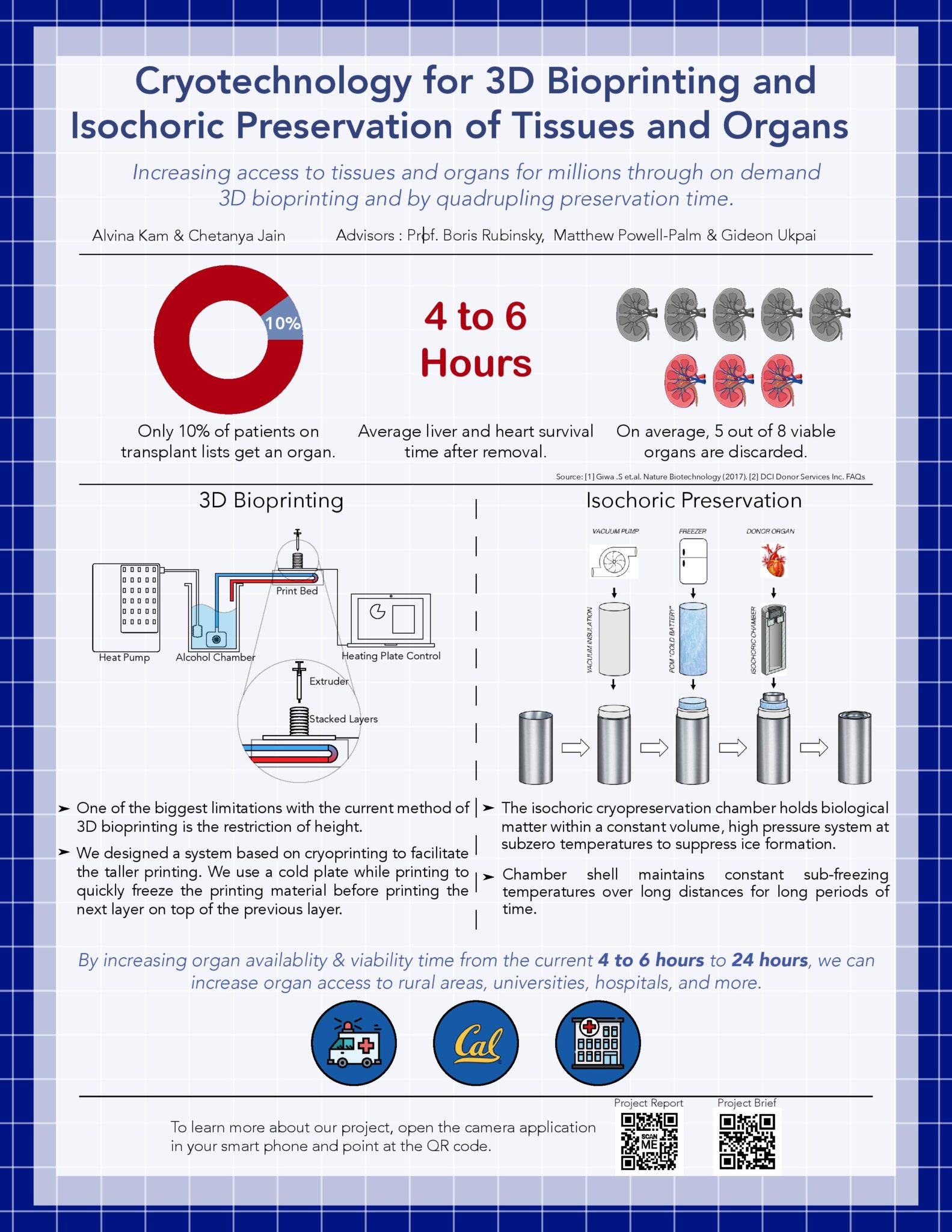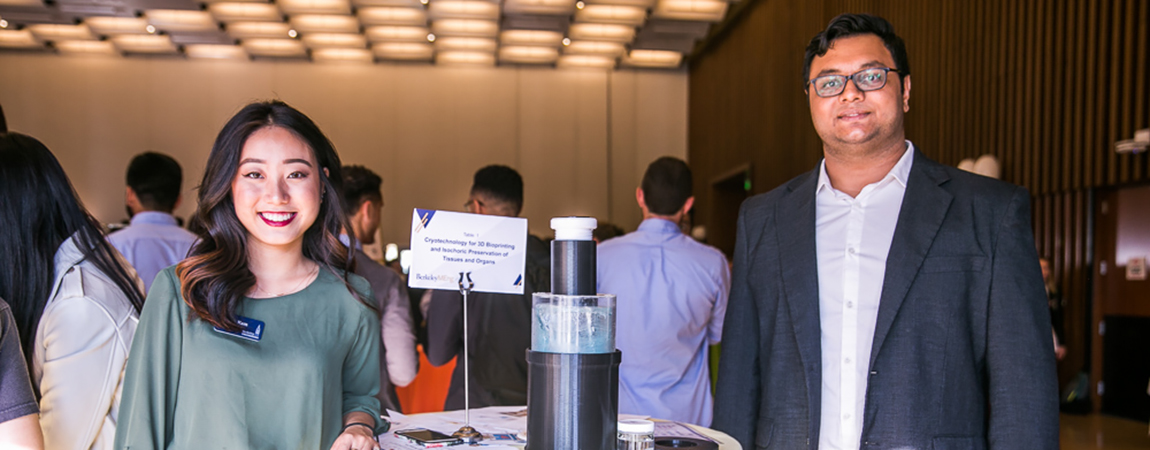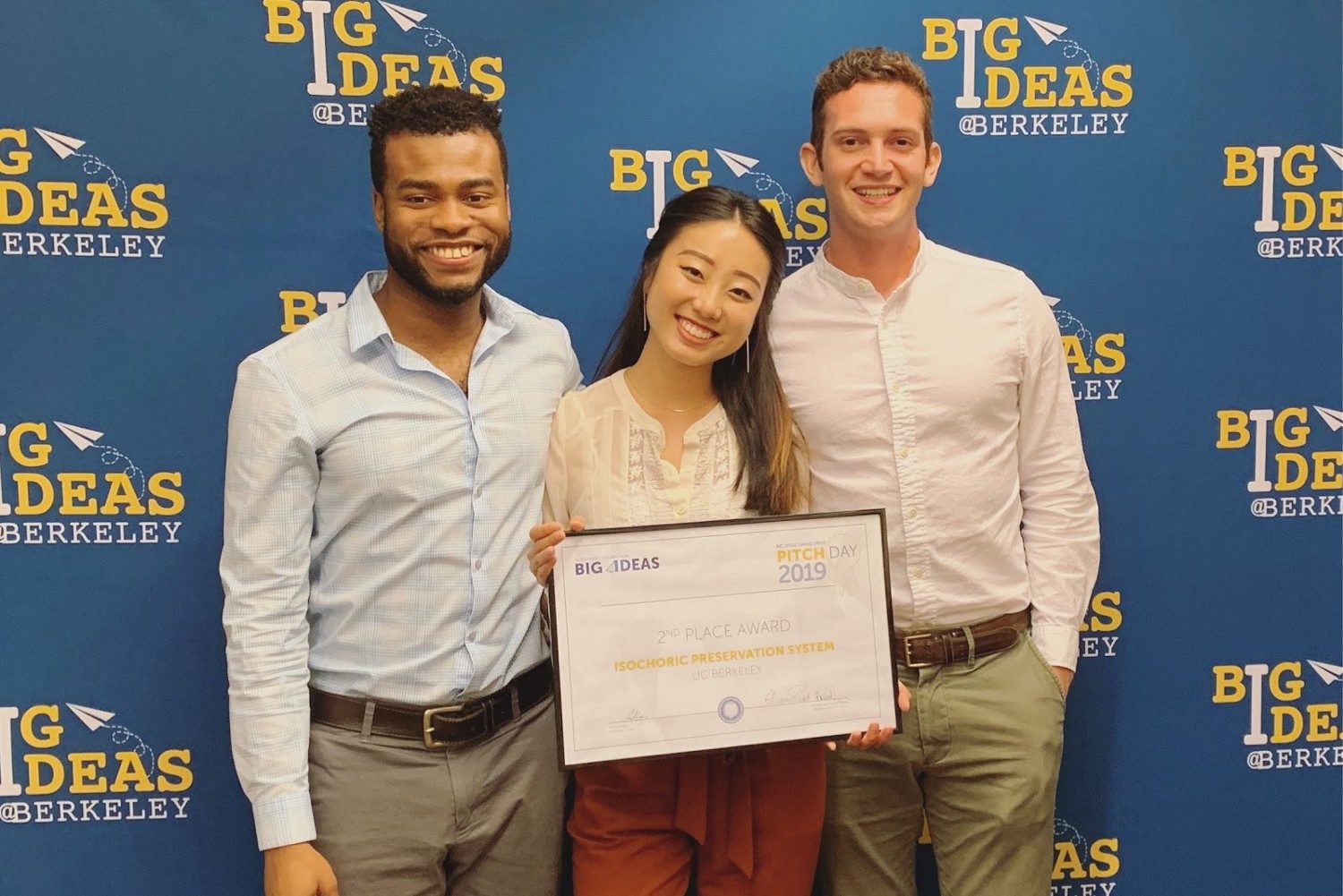Increasing access to tissues and organs for millions through on demand 3D bioprinting and quadrupling current preservation times.
Team: Alvina Kam (MSE), Chetanya Jain (BioE)
Advisor: Boris Rubinsky (ME), Matthew Powell-Palm (ME), Gideon Ukpai (ME)
Only 10% of patients worldwide in need of an organ receive one, while the window of organ delivery is currently limited to 4-6 hours. The most common way to preserve an organ is to cool it in order to slow its metabolism, but current methods are limited because lower temperatures lead to the formation of intratissue ice crystals that damage the structural integrity and function of the organ, making it a major deterrent to organ viability. In order to address this, our team has developed a two-phase solution of 3D bioprinting and isochoric preservation technology aiming to produce transplantable tissues and extend organ viability time to 24 hours using low temperatures. Tissues printed with a cell-loaded bioink will comprise of cells at low temperatures, increasing the overall survivability rate and allowing for more complex printing. These tissues will then be stored in an isochoric chamber, which utilizes a constant volume, high pressure system to suppress ice formation at low temperatures, effectively slowing the metabolic rate and keeping the organ cold for longer periods of time. Tissues and organs can then be globally distributed to eliminate current time and cost constraints, potentially saving thousands of lives and improving millions globally.
Problem
Only 10% of patients worldwide in need of an organ receive one, while the window of organ delivery is currently limited to 4-6 hours. The most common way to preserve an organ is to cool it in order to slow its metabolism, but current methods are limited because lower temperatures lead to the formation of intratissue ice crystals that damage the structural integrity and function of the organ, making it a major deterrent to organ viability. In this process 5 out of 8 organs are discarded.
Benefited Groups
- Rural Area Residents
- Universities
- Hospitals
Solution
Two-phase solution of 3D bioprinting and isochoric preservation technology aiming to produce transplantable tissues and extend organ viability time to 24 hours using low temperatures.
Process
Tissues printed with a cell-loaded bioink will comprise of cells at low temperatures, increasing the overall survivability rate and allowing for more complex printing. These tissues will then be stored in an isochoric chamber, which utilizes a constant volume, high pressure system to suppress ice formation at low temperatures, effectively slowing the metabolic rate and keeping the organ cold for longer periods of time.

← View all Capstone Projects






